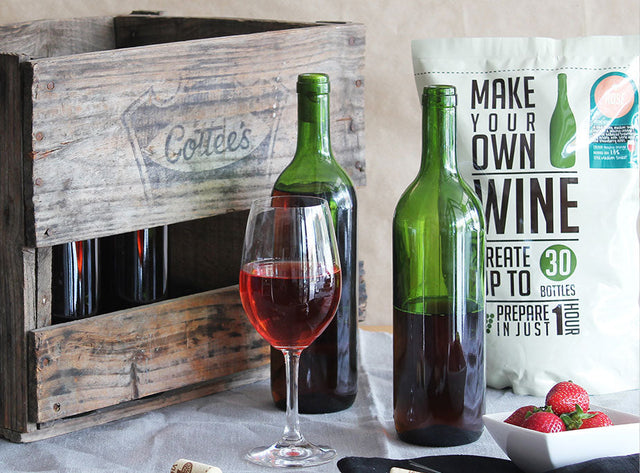
Winemaking is it's own unique challenge, and if you're a brewer who wants to try more or not much of a beer drinker why not give it a go. Do your research and grab a starter kit to get going.

Winemaking is it's own unique challenge, and if you're a brewer who wants to try more or not much of a beer drinker why not give it a go. Do your research and grab a starter kit to get going.
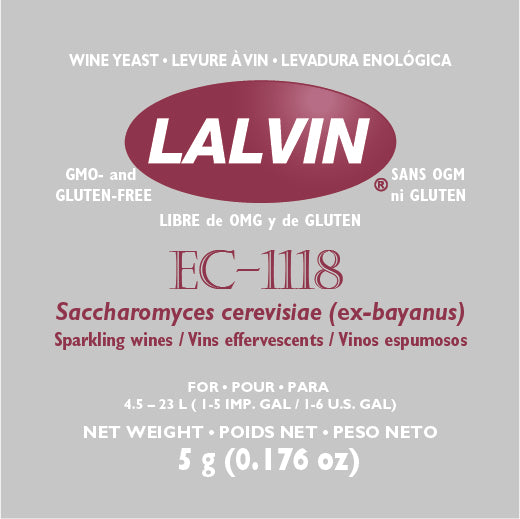
Isolated in Champagne, EC1118 has a wide range of applications where a rapid neutral fermentation is required, including fermentation of white and red wines table wines, secondary fermentation, late harvest whites and also for barrel fermentations and restarting stuck ferments. EC1118 has high fermentation vigour, low nitrogen demand, ferments over a wide temperature range (10°- 30°C), tolerates up to 18% v/v alcohol, and is killer active. Flocculates well with very compact lees. Relatively high level of colour extraction in red wines.
$4.00
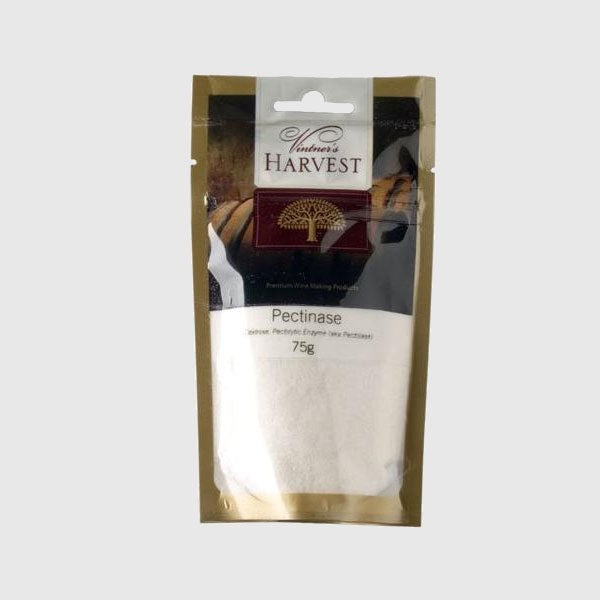
Pectinase breaks down the pectins in fruit, releasing juice and flavour and enhancing yield.
$10.00
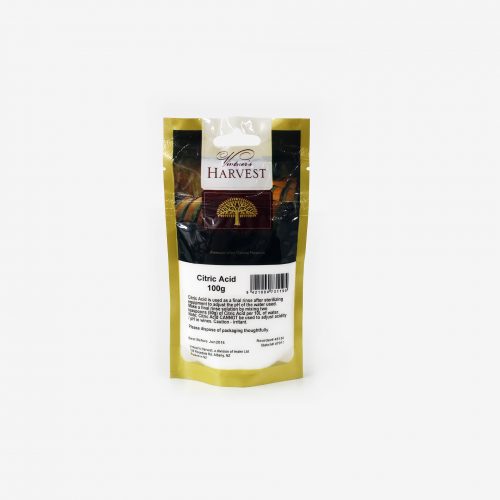
Citric Acid is used as a final rinse after sterilizing equipment to adjust the pH of the water used.
$4.00
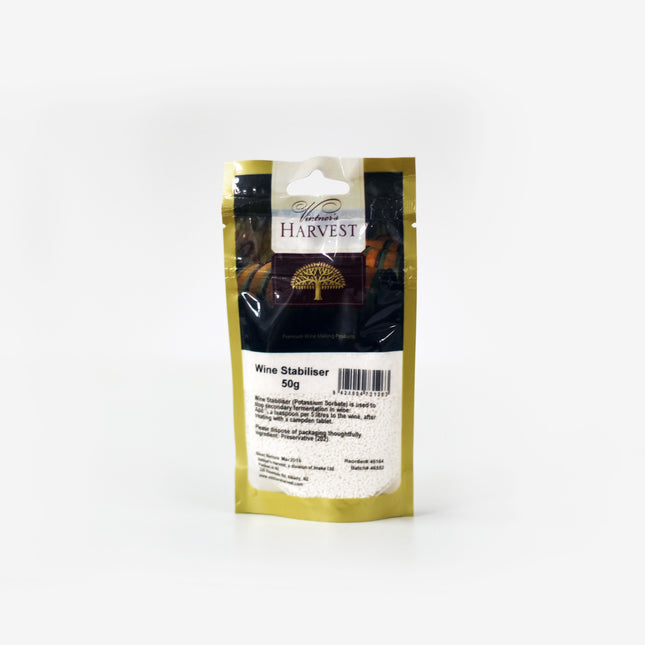
Wine Stabiliser (Potassium Sorbate) is used to stop secondary fermentation in wine. Add ½ a teaspoon per 5 litres to the wine, after treating with a campden tablet.
$8.00
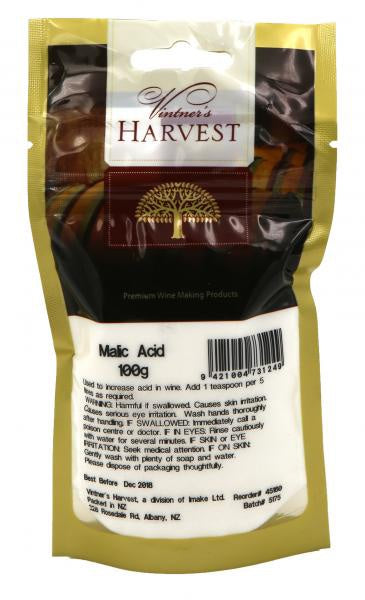
Used to increase acid in wine. Add 1 teaspoon per 5 litres as required.
$7.00
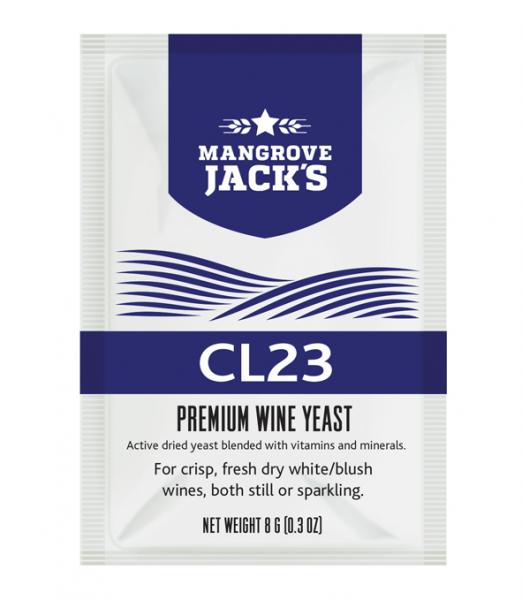
For crisp, dry fresh white/blush wines. Still or sparkling. Champagne yeast is often used for cider and ginger beer.
$5.00
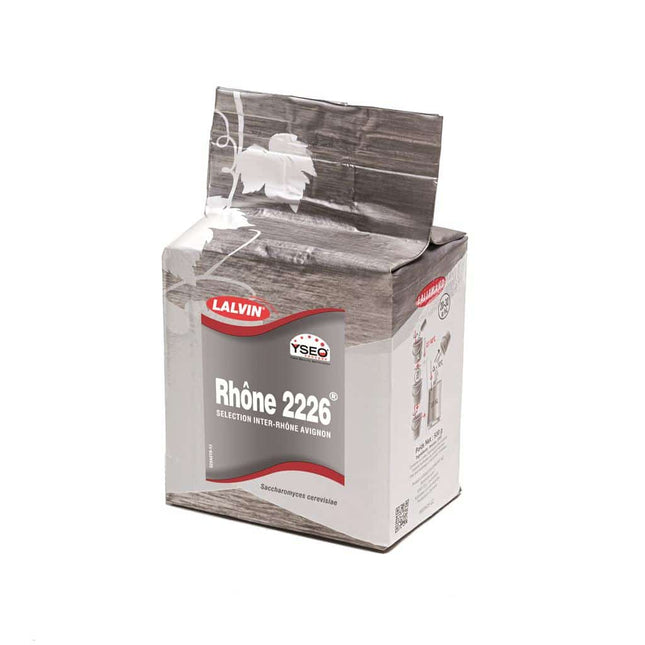
Alcohol tolerance and fermentation performance are key attributes of this yeast. Contributes to aroma, structure and colour stability in quality red wines for warm to hot regions. Given its tolerance to high alcohol, this yeast is recommended for the fermentation of high sugar red wines. Not only are its environmental parameters conducive to reliability under these conditions, it contributes to wine quality by enhancing varietal aroma expression, contributing to tannin structure and maintaining a high colour intensity.
$33.50
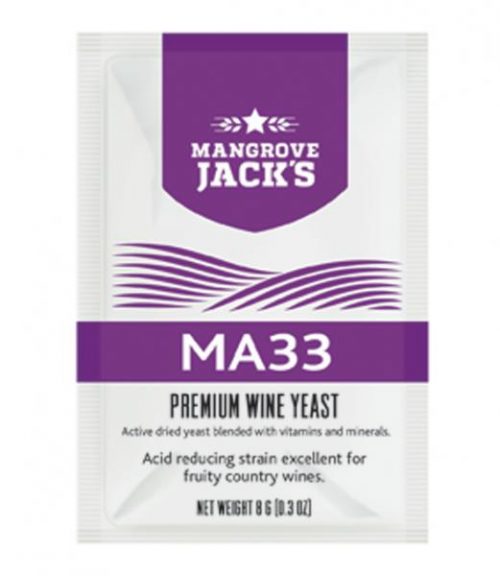
8g wine yeast. Acid Reducing strain excellent for fruity country wines. For best results ferment at 18-27°c
$5.00
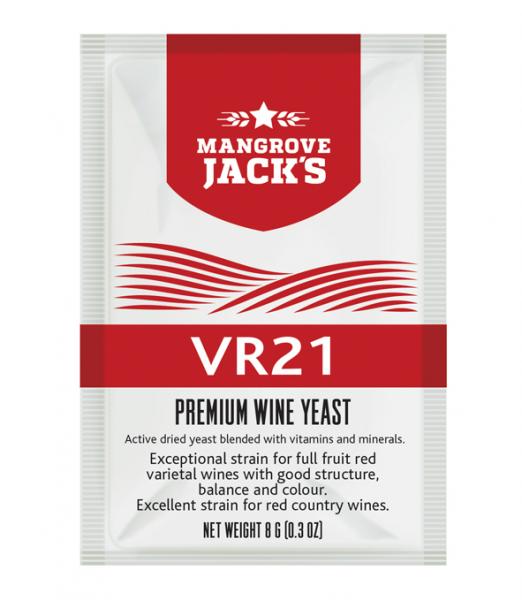
8g Wine Yeast. Exceptional strain for fruit red varietal wines with good structure, balance and colour. Great strain for red country wines.
$5.50
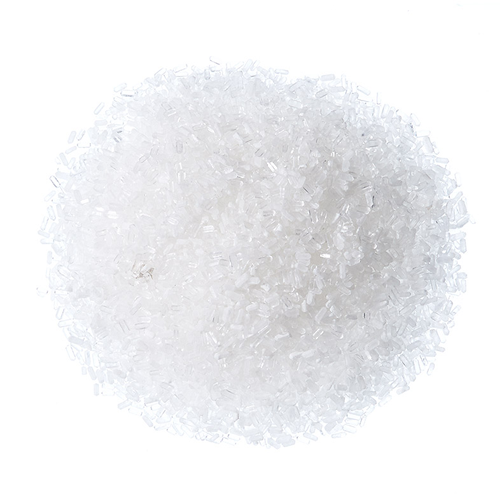
Used to increase acid in wine. Add 1 teaspoon per 5 litres as required.
$5.00
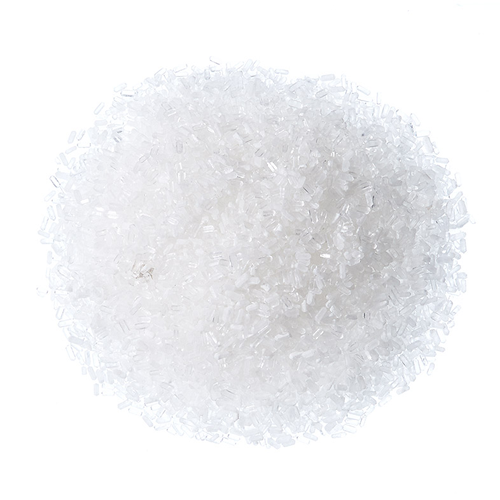
Provides nitrogen essential for yeast growth and preventing H2S (Hydrogen sulfide). Add 15gm per 100lt of juice to the bulk prior to adding yeast. After 3-4 days add another 15gm per 100lt.
$4.50
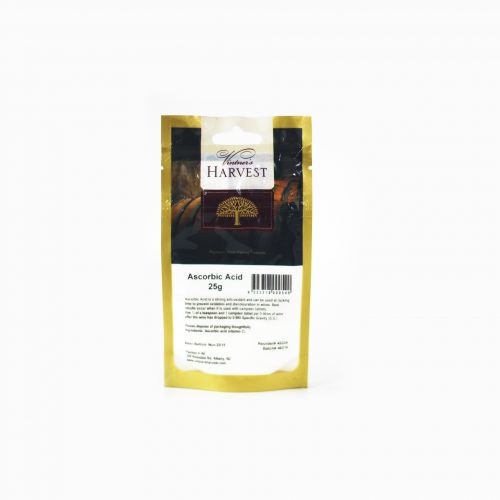
Ascorbic Acid is a strong anti-oxidant and can be used at racking time to prevent oxidation and discolouration in wines. Best results occur when it is used with campden tablets.
$4.00

Isolated in Champagne, EC1118 has a wide range of applications where a rapid neutral fermentation is required, including fermentation of white and red wines table wines, secondary fermentation, late harvest whites and also for barrel fermentations and restarting stuck ferments. EC1118 has high fermentation vigour, low nitrogen demand, ferments over a wide temperature range (10°- 30°C), tolerates up to 18% v/v alcohol, and is killer active. Flocculates well with very compact lees. Relatively high level of colour extraction in red wines.
$33.00
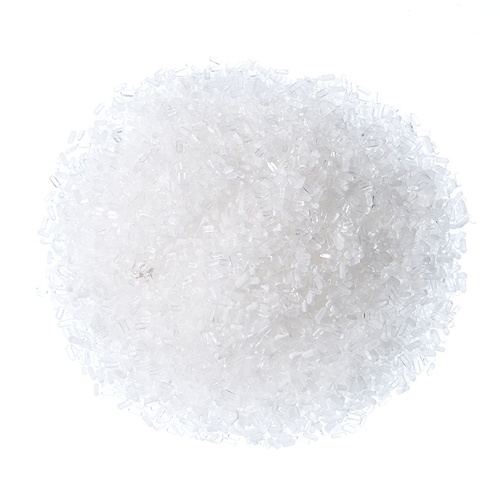
Provides nitrogen essential for yeast growth and preventing H2S (Hydrogen sulfide). Add 15gm per 100lt of juice to the bulk prior to adding yeast. After 3-4 days add another 15gm per 100lt.
$10.00
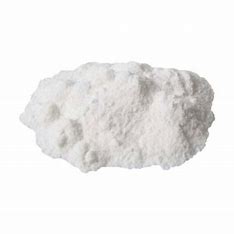
Used to prevent oxidation and growth of wild yeast and bacteria in wine. Crush: 1g per 10kg fruit, double if fruit is in poor condition Racking: 1g per 10 litres of wine
$5.00
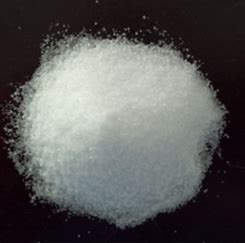
Used to increase acid in wine. Add 1 teaspoon per 5 litres as required.
$15.00
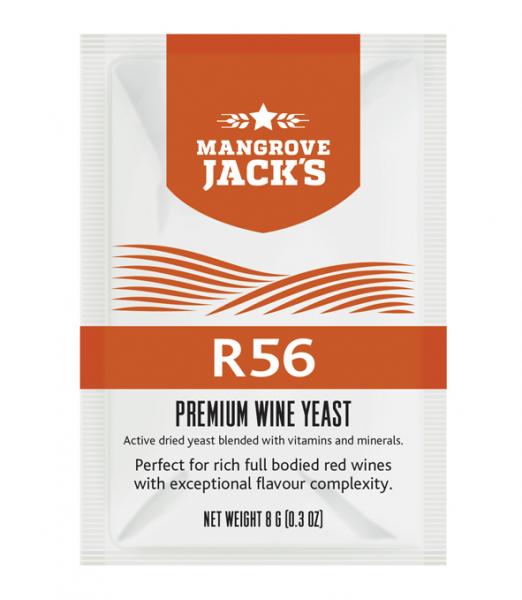
8g Wine Yeast perfect for rich full bodied red wines with exceptional flavour complexity.
$5.50
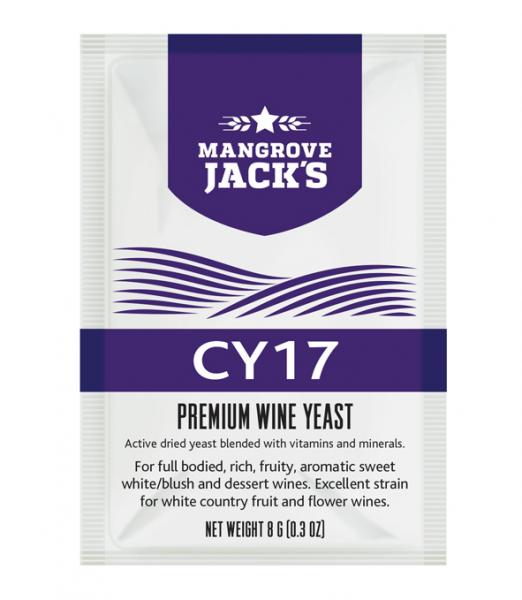
8g Wine Yeast. For full bodied, rich fruity aromatic sweet white/blush and dessert wines. Excellent strain for white country fruit and flower wines.
$5.50
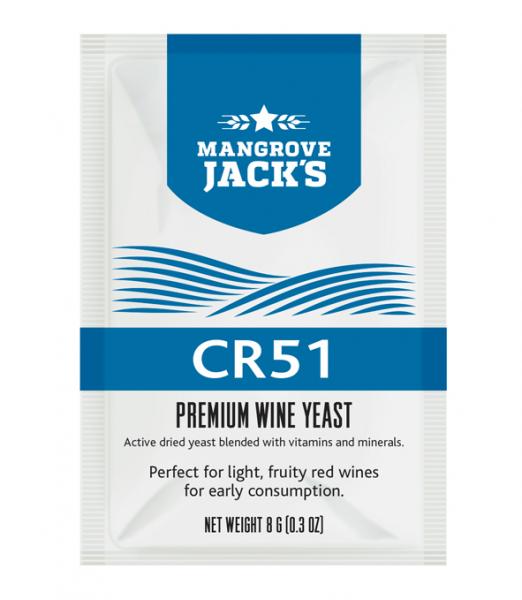
Perfect for light, fruity red wines for early consumption.
$5.50
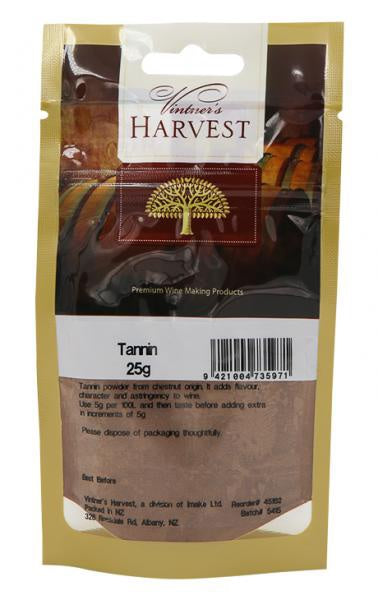
Tannin powder from chestnut origin. It adds flavour, character and astringency to wine. Use 5g per 100L and then taste before adding extra in increments of 5g
$5.00
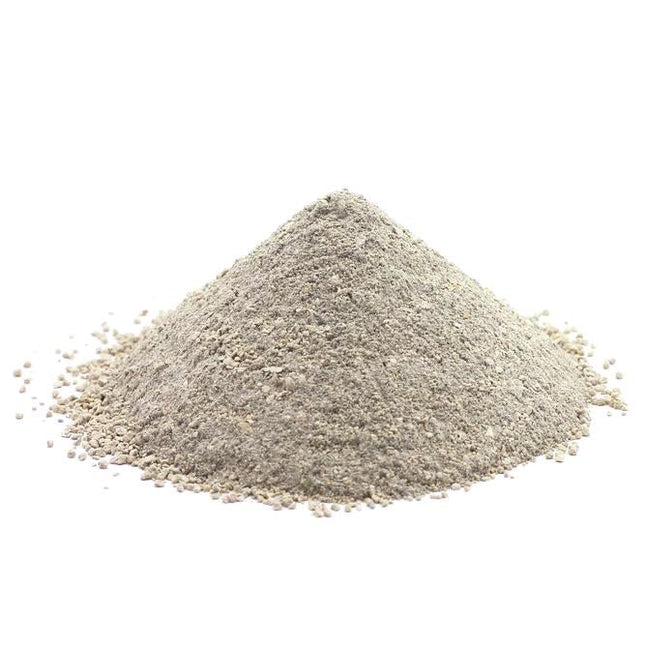
Bentonite is a type of very fine clay made of aluminium-silicate. It is distinct from other clays in that it is formed from volcanic ash. Bentonite is principally used to remove proteins from white wine and juice, as it is a negatively charged clay colloid and reacts with positively charged proteins, precipitating them from the wine. Use of bentonite in red wines should be limited because of its ability to reduce colour by adsorption of anthocyanins. Mix 3 tablespoons of Bentonite to 500ml of boiling water. It is then recommended that you add 1 to 2 tablespoons of the slurry mix to each 5 litres of wine that is to be treated.
$5.00
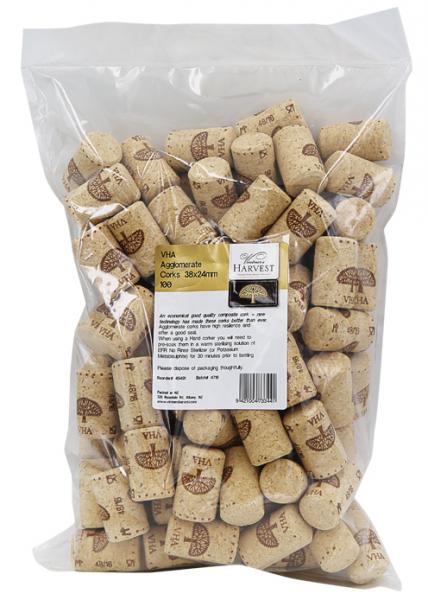
Size: 38 x 21mm An economical good quality composite cork - new technology has made these corks better than ever. Agglomerate corks have a high resilience and offer a good seal. When using a hand corker you will need to pre-soak them in a solution of a no rinse sanitiser (or potassium metabisulphite) for 30 minsutes prior to bottling.
$22.00
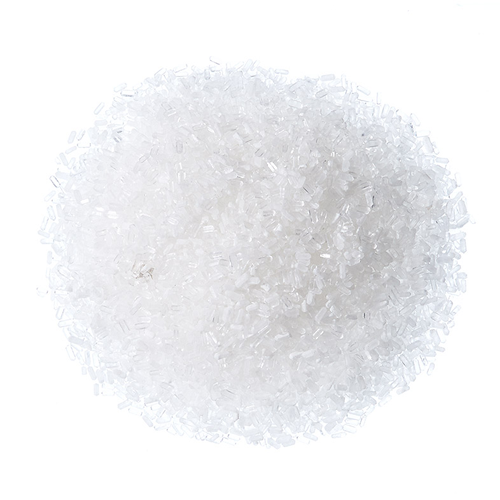
Used to increase acid in wine. Add 1 teaspoon per 5 litres as required.
$20.00
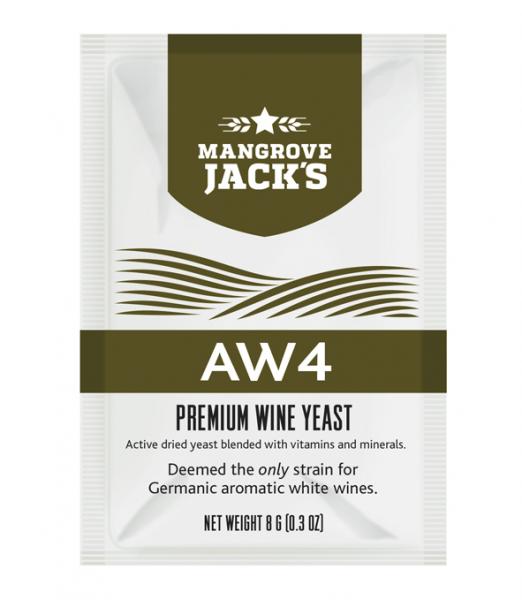
The 'only strain' for Germanic aromatic white wines.
$5.50
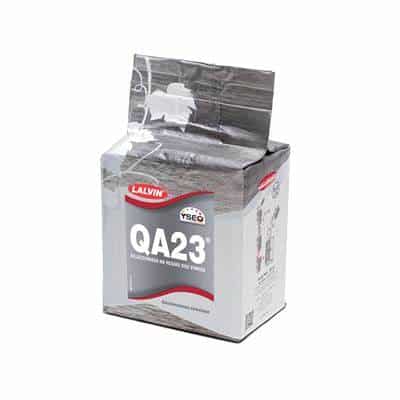
For fresh, fruit focused whites – A clean fermenter, rated highly in thiol conversion for optimum varietal expression. Lalvin QA23® has a very high ?-glucosidase activity, enzymes which help cleave non-volatile aromatic compounds into their volatile state. Hence this yeast contributes to varietal / terroir fruit expression. It is known to enhance citrus fruit type aromas including lime and grapefruit. For fresh, fruit focused whites – A clean fermenter, rated highly in thiol conversion for optimum varietal expression. Lalvin QA23® has a very high ?-glucosidase activity, enzymes which help cleave non-volatile aromatic compounds into their volatile state. Hence this yeast contributes to varietal / terroir fruit expression. It is known to enhance citrus fruit type aromas including lime and grapefruit.
$33.50
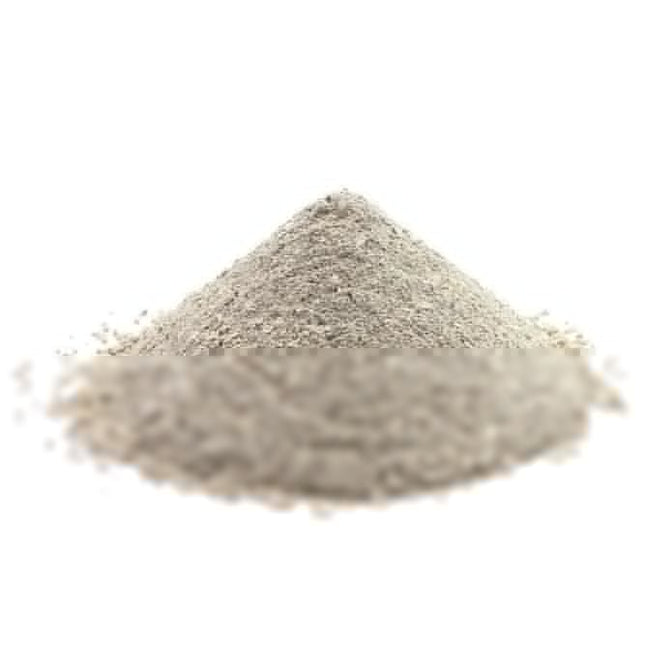
Bentonite is a type of very fine clay made of aluminium-silicate. It is distinct from other clays in that it is formed from volcanic ash. Bentonite is principally used to remove proteins from white wine and juice, as it is a negatively charged clay colloid and reacts with positively charged proteins, precipitating them from the wine. Use of bentonite in red wines should be limited because of its ability to reduce colour by adsorption of anthocyanins. Mix 3 tablespoons of Bentonite to 500ml of boiling water. It is then recommended that you add 1 to 2 tablespoons of the slurry mix to each 5 litres of wine that is to be treated.
$3.00
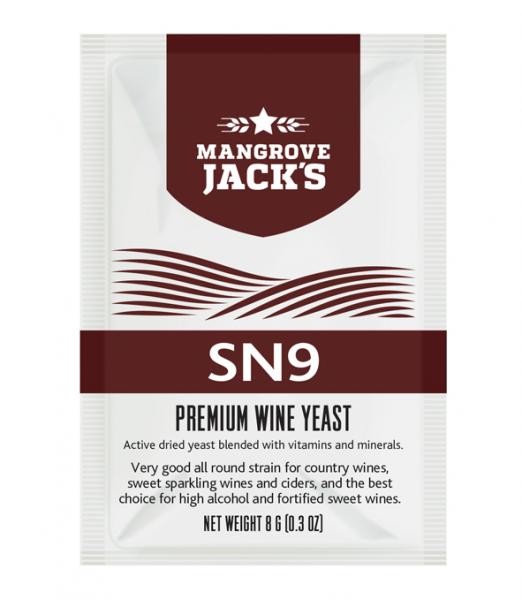
8g Wine Yeast. Very good all round strain for country wines, sweet sparkling wines and ciders and the best choice for high alcohol and fortified sweet wines.
$5.50
$12.00
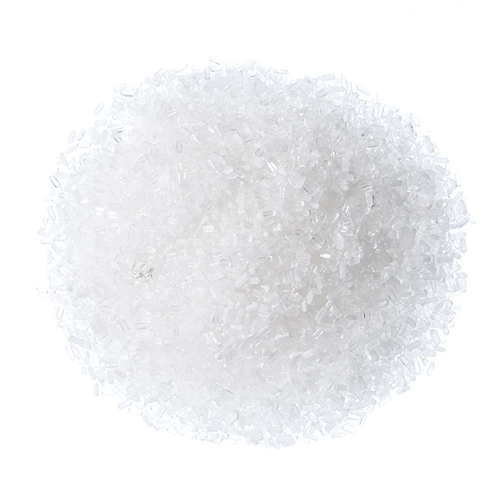
Used to increase acid in wine. Add 1 teaspoon per 5 litres as required.Also available in 100gm or 1kg packs
$12.50
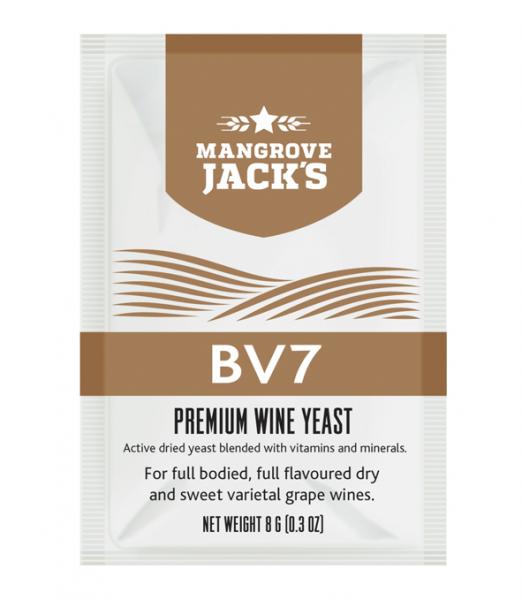
8g Wine Yeast. For full bodied, full flavoured dry and sweet varietal grape wines.
$5.50
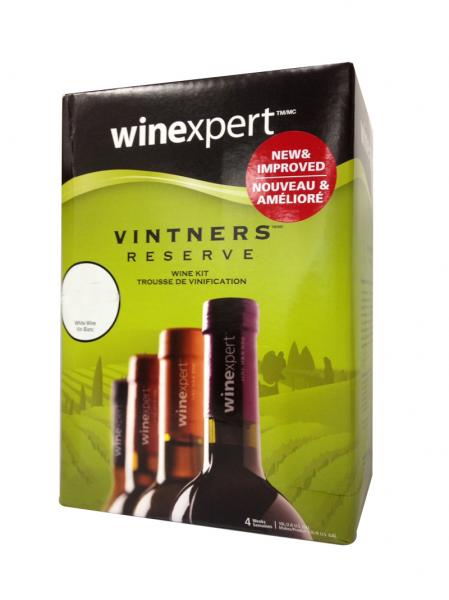
Pinot Noir, CaliforniaStrawberry, cherry and earthy notes.SWEETNESS: DRYOAK: MEDIUMBODY: LIGHT-MEDIUMALCOHOL: 12.5%
$100.00
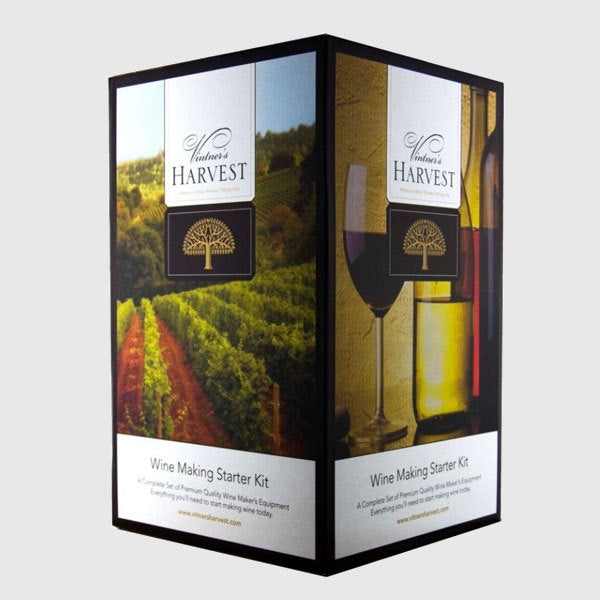
A complete set of premium quality winemaker's equipment. Everything you'll need to start making wine today. Kit Includes: 30 Litre Fermenter, Airlock & Grommet 23 Litre Demijohn, Airlock & Bung Easy Syphon Hydrometer 39cm Spoon Bottle Brush No Rinse Sterliser Cold water cleaner Just add one of our Winexpert kits for all your ingredients, or source your own grapes and winemakers additives.
$300.00
Used for measuring the percentage of alcohol in your wine and mash.
$10.00
$20.00
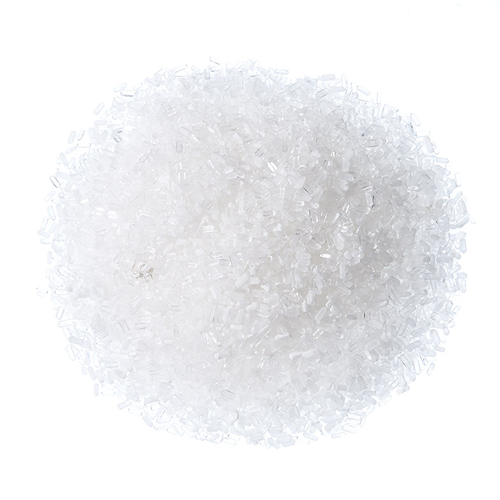
Provides nitrogen essential for yeast growth and preventing H2S (Hydrogen sulfide). Add 15gm per 100lt of juice to the bulk prior to adding yeast. After 3-4 days add another 15gm per 100lt.
$25.00
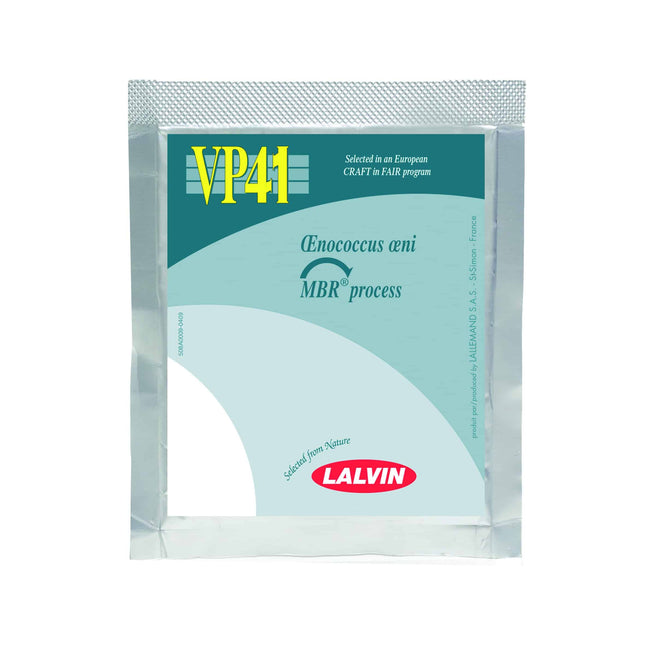
Lalvin VP41® was isolated in Italy during an extensive European Union collaboration to research natural Oenococcus oeni strains. Numerous wineries and enological institutes participated in this four-year effort to isolate, study and select malolactic bacteria with unique winemaking properties. The positive mouthfeel contribution of Lalvin VP41® stood out in tastings when compared to other ML bacteria strains. In temperatures below 16°C (61°F), Lalvin VP41® is a slow starter, but will complete fermentation. The very good implantation, high alcohol and SO2 tolerance, plus the steady fermentation kinetics of Lalvin VP41®, make it a very reliable malolactic fermentation culture to use when a significant impact on wine structure is desired.
$50.00
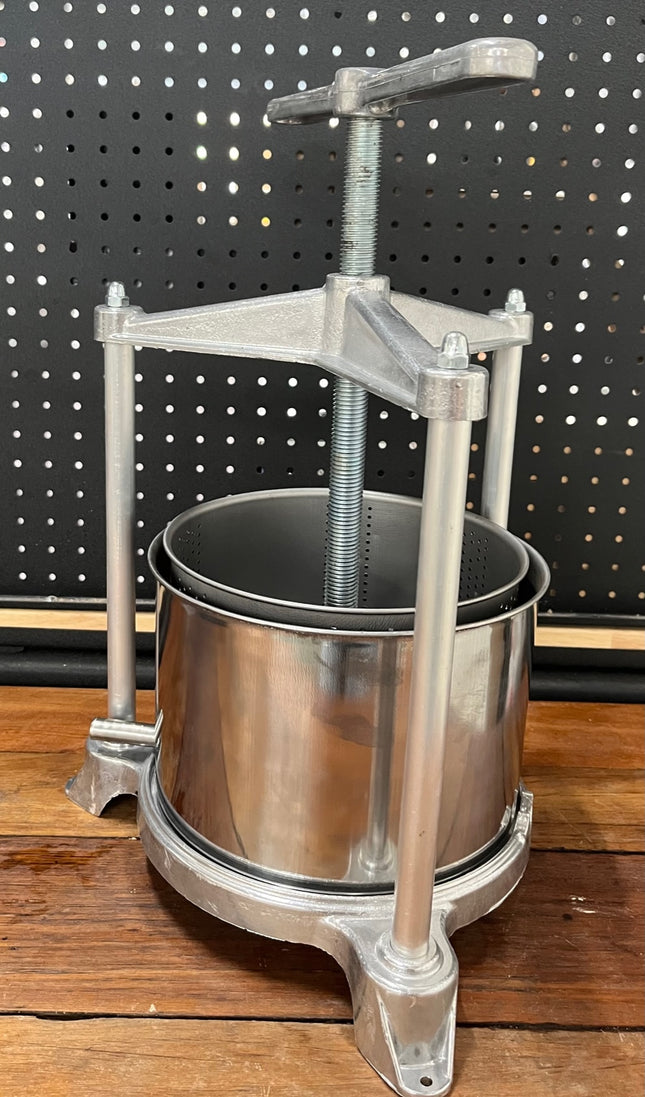
$220.00
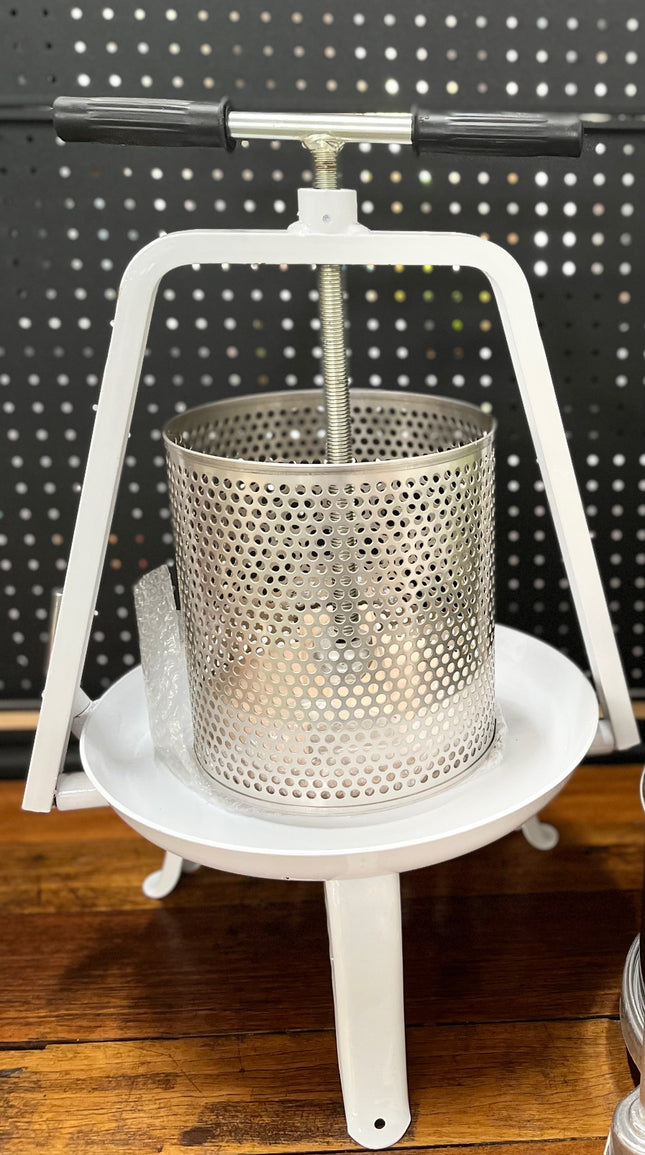
$375.00